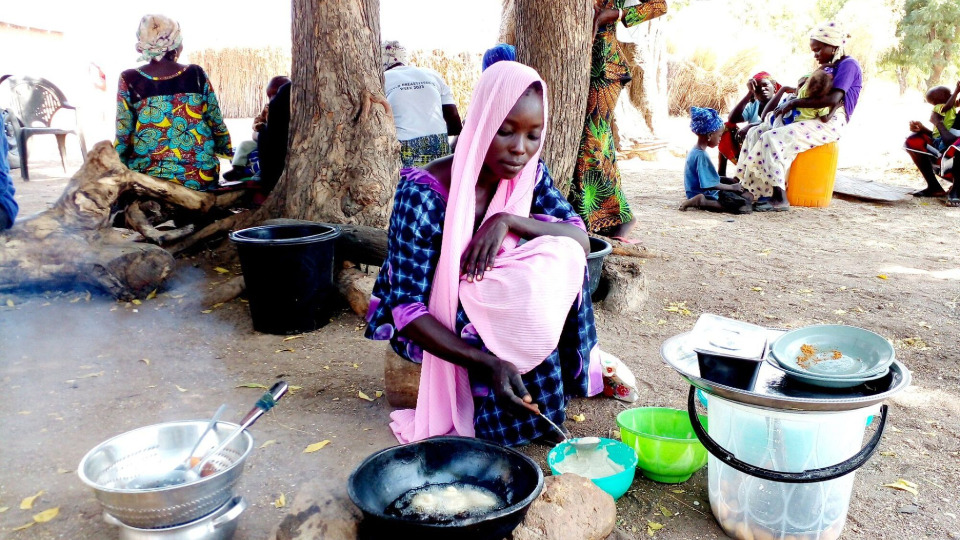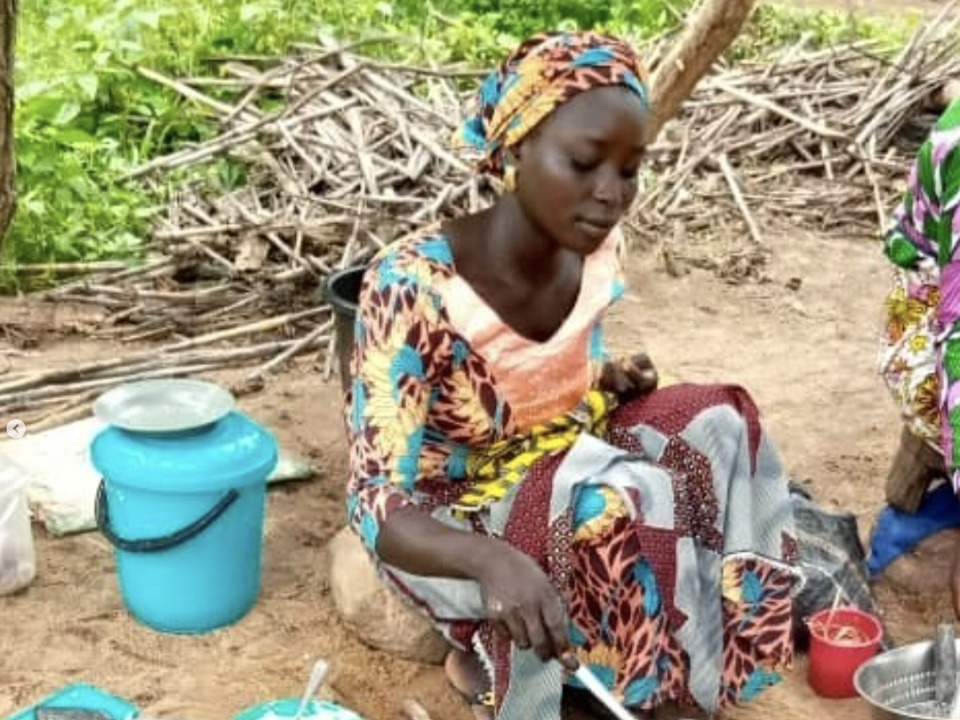
This story appears here courtesy of TheChurchNews.com. It is not for use by other media.
By Mary Richards, Church News
Tabitha Dauda was displaced from her village because of insecurity in Gwoza, Nigeria, in 2014. She settled in the Mayo-Ine community after fleeing with her family.
“Even while living in Gwoza, life was not smooth,” she said. “And having to flee from the insurgency made it worse, as living in a strange place and fending for our child was difficult, and I had no source of income.”
She and her husband offered to provide labor to farm owners in order to get money or food to survive.
Then they received assistance from Helen Keller Intl, a nonprofit organization promoting self-reliance, health and vision around the world. Dauda said when she was given items to help her fry and sell akara — Nigerian bean fritters — “it brought a huge change in our lives.”
From the profits she makes from selling akara, she can buy healthy foods and improve her family’s diet. Helen Keller workers also trained her in homestead gardening and growing her own crops.
“I am also able to feed myself, my baby and my husband with a nutritious meal, some of which is gotten from my home garden that I was taught how to cultivate by Helen Keller Intl and started my savings,” she said.
The Church of Jesus Christ of Latter-day Saints works with Helen Keller to support self-reliance in seven communities hosting internally displaced persons in Nigeria, including Douda’s community.
Through the Church’s funding and support, the global organization — co-founded by Helen Keller herself in 1915 — provides training and tools to help these individuals create incomes for their families.

Hafsatu Ibrahim is another woman who started a home garden through training from Helen Keller Intl and the Church. She also fled her home in Gwoza after violence erupted. Now she, her husband and their 11 children live in the Pariya community, which houses internally displaced persons.
Before Ibrahim received the training, her garden was seasonal and didn’t produce much. After training, her home garden feeds her family all year round with minimal cost.
As her home garden grew, she started selling the extra at the local market to raise more income for her family. She made enough money to buy goats and send some of her children to the community school in Pariya.
“I want all my children to be educated so they can be prominent people in the society like the health workers who treat the injured and the sick or humanitarian workers like the Helen Keller Intl project team who has helped us start a new life after the insurgency crisis that displaced us,” Ibrahim said.
The Church supports Helen Keller Intl’s work to promote self-reliance for internally displaced persons in several countries in Africa and its work with refugees and others in the U.S.
Funding from the Church has allowed community health workers to screen for malnutrition and train mothers how to provide the right care for their children.
And new funding announced in August 2023 will support the organization’s efforts to help women have healthy pregnancies and babies have a nutritious start to life.
Helen Keller Intl’s corporate and foundation relations manager Erin Sawaya said they want to help people overcome long standing cycles of poverty by giving them the building blocks of good health, sound nutrition and clear vision.
“The goal is to help everyone live up to their true potential,” she said.
Copyright 2024 Deseret News Publishing Company.